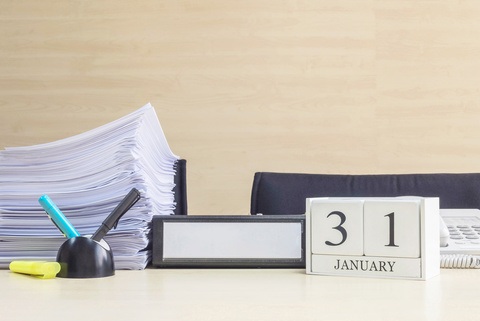The tax man reckons around 5.5 million people have left filing their self-assessment returns to the last minute and are rushing to beat the deadline of midnight on January 31.
In last year’s final fling to send in tax returns online, nearly 759,000 taxpayers still had to deliver their tax returns to HM Revenue & Customs (HMRC) on deadline day.
The busiest time was between 4pm and 5 pm, when 60,596 returns were received online at the rate of 17 a second.
Another 30,348 played brinkmanship by not filing until the 11th hour – with less than 60 minutes to go to the deadline.
Anyone missing the deadline picks up an automatic £100 fine, even if they do not owe any tax.
But it’s easy to avoid paying the penalty for late filing.
All you must do is play the rules for amending a self-assessment tax return to your advantage. Accountants do this all the time.
The rules say taxpayers can amend their returns any time for up to a year after filing.
For a return due at midnight on January 31, 2019, that leaves an amendment window open until January 31, 2020.
To avoid a penalty, fill in your tax return as best you can filling any gaps with a best guess of provisional figures.
Make sure HMRC knows which figures are estimates by saying so and quoting the box numbers in the additional information section. HMRC will also want to know when the update is due.
Your filing software should work out the tax due. File the return before midnight on January 31 and pay the tax.
When you have the final figures, log back into the return online and make the changes. If you owe a bit more tax, pay up. You may find you have overpaid tax, in which case make a claim for a refund.
That’s it – even though the return includes provisional figures you have delivered your return and paid the tax due on time. Amending the return should not incur any penalty.




